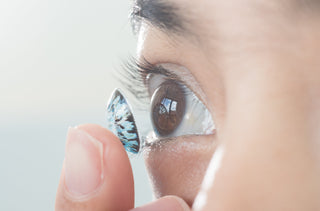When was the last time your parents had their eyes checked? Many people forget to visit their optometrist every year, like they do with their family doctor or dentist. Still, good vision is essential to your parents' autonomy. It is recommended that adults see their eye doctor at a minimum every two years. From the age of 65, we strongly recommend they consult their optometrist every year. Plus, on the bright side, most provincial public health insurance plans cover the yearly eye exams fees for adults aged 65+. At this age, your parents are at a greater risk of getting an eye disease. Here are some signs that it is probably time for them to visit their optometrist:
- They Are Reluctant to Drive
If your parents do not enjoy driving anymore, it may be a sign that their vision has deteriorated. Seeing less clearly on the road decreases driving confidence and can make driving difficult, especially in difficult conditions, such as in the evenings or in the rain. For example, street names may be more difficult to distinguish if vision drops. The perception of halos around the lights will also make driving more difficult. A loss of vision when driving may also result in a reduced field of vision, which may be a sign of unhealthy eyes.
- They Have More Difficulty Reading Their Newspaper, Tablet or Phone
You may have noticed that your parents are starting to squint to see what they are reading, which probably means that their eyes have difficulty focusing. This is a major sign that their near vision has possibly started to diminish. Most of the time, it is possible to correct their vision by adjusting their prescription. On the other hand, vision loss can also be caused by a decrease in visual acuity. Visual acuity is affected when our eyes have an eye disease. Quickly detecting diseases such as age-related macular degeneration by getting their eyes checked yearly will help slow its progression.
- They Often Squint When They Are Outside
When the light bothers us, our eyelids have the reflex of crinkling up to bring less light into our eyes. If your parents are squinting more often than before, especially outdoors, it may mean that they are particularly sensitive to light. The sun, as well as car headlights and street lights, can be very bothersome in case of sensitivity to light. They seem brighter and cause halos around the light sources, which makes driving in the evening difficult. A sensitivity to light can mean that they are progressively losing vision, or that they have an eye problem.
- They See Flashes or Floaters
If your parents see flashes, try to have them see the optometrist as soon as possible. This may be indicative of an increased risk of retinal detachment. If they see small filaments in their field of vision, those are probably floaters. These are caused by the modification of the vitreous, a kind of gel inside the eye. Floaters can be harmless, but can also be a sign of eye disease, hence the importance of consulting an optometrist on a yearly basis.
- Their Vision is Veiled
Different problems can lead to veiled vision. For example, cataracts give the impression of looking through a veil, decreasing the quality of vision. It can also be a corneal problem, an infection, or even dry eye. During the eye exam, the optometrist will be able to detect cataracts and other problems and, will refer your parents to an ophthalmologist, if needed.
- They Stumble on or Bump into Things More Often
A decline in vision may be the cause of falls or more frequent accidents, especially amongst the elderly population. Did one of your parents ever mentioned that it was getting more difficult for them to move around? This can mean that an eye disease is slowly setting in. For example, glaucoma can seriously affect the field of vision, and decrease mobility and independence. A visit to the optometrist will help them understand what is happening.
- They See Double
If one of your parents suddenly sees double, it can be a sign of a health problem. This problem could affect vision, but also other parts of the body, such as the brain. Sudden double vision can be a sign of a neurological problem, and can even sometimes be a symptom of a tumour. An eye exam will identify the cause of this change in their vision. The optometrist will be able to refer your parents to a specialist, if necessary.
- They Have Red Eyes
Eye redness can be caused by many things, such as allergies, infection, or dryness. During an eye exam, the optometrist will be able to determine why your parent has red eyes. They will thus offer a suitable treatment to reduce or eliminate redness, and improve visual comfort.
If your parents do not know when their last eye exam was, it's probably over a year. To ensure that their eyes are healthy, people over 65 must have an eye exam every year, or more frequently depending on their condition. Invite your parents to visit their optometrist regularly to maintain good eye health and to give them a better quality of life.





















































